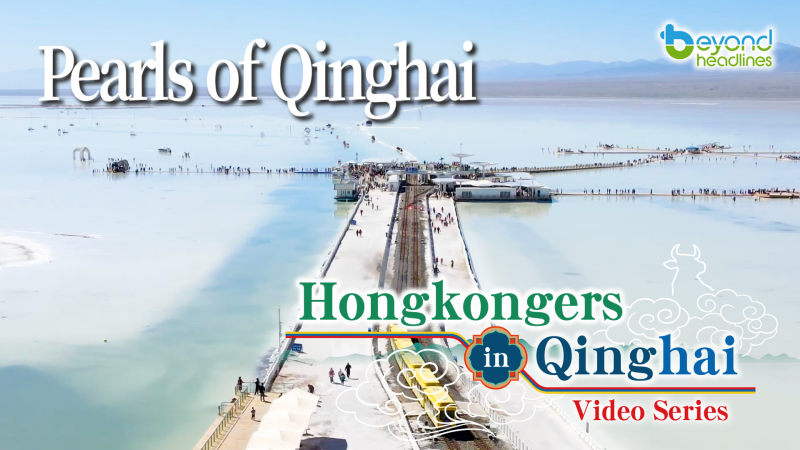Q1. As stated in the "14th Five-Year Plan”, the central government has pledged its support for Hong Kong to become international finance, trade and shipping centers. What do you think about the Hong Kong's role and positioning?
I think in terms of being an international shipping center, Hong Kong obviously has a very important port that used to be the top of the world in terms of throughput. But in recent years, it has been a competition as well as complimentary support from the rest of the Greater Bay Area ports.
That is the port's development. But in parallel, as a maritime center, Hong Kong has always been a place, a destination, a preferred base for a lot of ship owners or lessors, basically the individuals, commercial principals that are in control of the world fleet. As you are probably aware, most of the international trade are seaborne. Actually, 90% of all international trade are seaborne. And for this seaborne trade, that should be a minimum of about 60,000 ocean-going vessels what we call the ocean marine fleet that is worth at least 1.4 trillion US dollars excluding the tonnages and the vessels that are on order. So it is a very big fleet and the world all the maritime centers in the world are competing with each other to have the right stability in terms of tax, in terms of the legal environment, in terms of regulatory environment to base the fleets.
Q2. Regarding the development of high-end shipping business, what unique advantages does Hong Kong have?
One country, two systems. If you remember, the President Xi emphasized that the use of common law in Hong Kong will prevail, will last. And this is very important because for the international, the maritime trade, most of the documents are actually construed under English law, which is the common law based. So this is the language in terms of conducting this regular business.
There could be litigations, arbitration, or mediation involving legal expertise. And that's all construed under the common law. So this is one big advantage for Hong Kong. Another thing is for vessels, for ships, they are denominated in US dollars, because this is a very international trade.
When you want to sell the vessel, that you will sell in the international market, and you will get a price, of course, in US dollar. So naturally, Hong Kong is a free port, free flow of currencies. And Hong Kong dollar is packed with US dollar. So those are really the natural advantage, especially on the workhorses for tankers and for bulkers, and all the energy side. So Hong Kong has all the natural advantages.
When we develop the parts about ship owning, you need legal expertise. You need lawyers who understand common law, maritime law, and also understand how to deal with disputes. You need a very robust banking and financing network, because all these assets are extremely capital intensive. So when you have financing, you have insurances as well. And then you need the ship managers, you need brokers, you need a lot of agents. All those things are here in Hong Kong, that have been developed for many years. And totally in touch with the rest of the world in terms of how these businesses are to be conducted. And most importantly, we have a lot of human resources, manpower, that are very fluent you know in this kind of value added services.
Q3.China is a major shipbuilding and shipping nation, and Hong Kong wants to become a world-class international shipping center. What Hong Kong can do or should do to contribute to high-quality development of the industry?
China has a huge requirement on trade and on movement of cargoes and of course we have very significant shipping companies like the Cosco China merchants. They have the fleet based in the mainland China and each of them have a big fleet based in the Hong Kong.
The world for the shipping is actually very diverse, and the state-owned companies even together with the Hong Kong owners that are based in Hong Kong or anywhere in the world. Actually a lot of people want to do business with China. Hong Kong actually has more sustainable solutions and experience that can deal with the movement of goods and that can also help China to a certain use of carnages.



![[The China Venture] EP12: Set Out for the World](https://img.beyondheadlines.hk/articles/cover/20241024/808efe4a6d4dbe2733f61abb4a7577e7.jpg!w800)


![[The China Venture] EP11: Beyond Canton Noodles](https://img.beyondheadlines.hk/articles/cover/20241018/3235b61ec90455cda6af499b0544e8cf.jpg!w800)

![[The China Venture] video series trailer](https://img.beyondheadlines.hk/articles/cover/20241015/63a29ad3566de0d493fd113d1c0ab660.jpg!w800)

![[The China Venture] EP14: Passing the Torch](https://img.beyondheadlines.hk/articles/cover/20241108/0d47ffb8b604acd22e3f38f1363949f5.jpg!w800)

